
Bitcoin price cracks $30K, possibly clearing a path for SOL, LINK, AAVE and STX
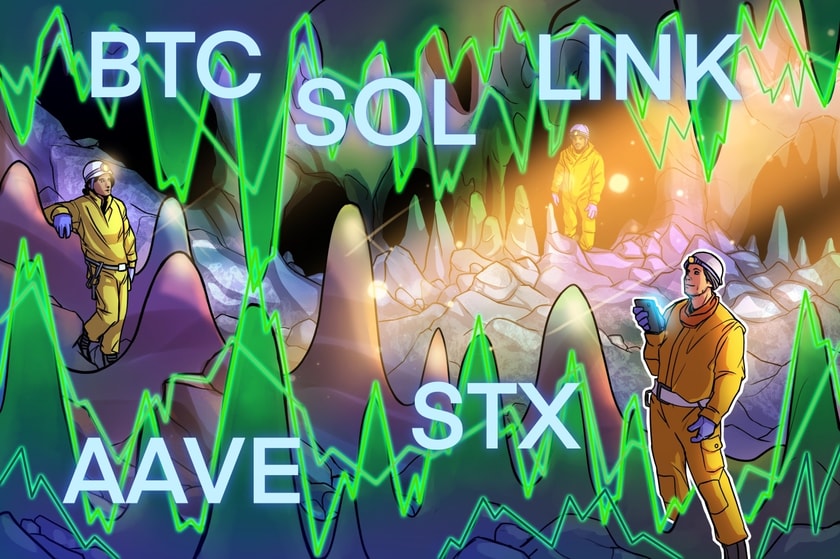
Bitcoin (BTC) had a good week with prices rising about 10% to reach the psychologically important level of $30,000…Bitcoin price analysisBitcoin is witnessing a tough battle between the bulls and the bears near the $30,000 mark, but a positive sign is that the buyers have not …

Bitcoin’s strong rally to $30,000 may have kick started a sharp recovery in SOL, LINK, AAVE and STX.
Bitcoin (BTC) had a good week with prices rising about 10% to reach the psychologically important level of $30,000. After the rally, the question troubling investors is whether the uptrend will continue or is time for a reversal to happen.
Trading team Stockmoney Lizards recently said that Bitcoin may soon break above its overhead resistance and start a sharp rally. They believe the approval for the exchange-traded fund will drive mass adoption and trigger the rally before the halving due in April 2024.
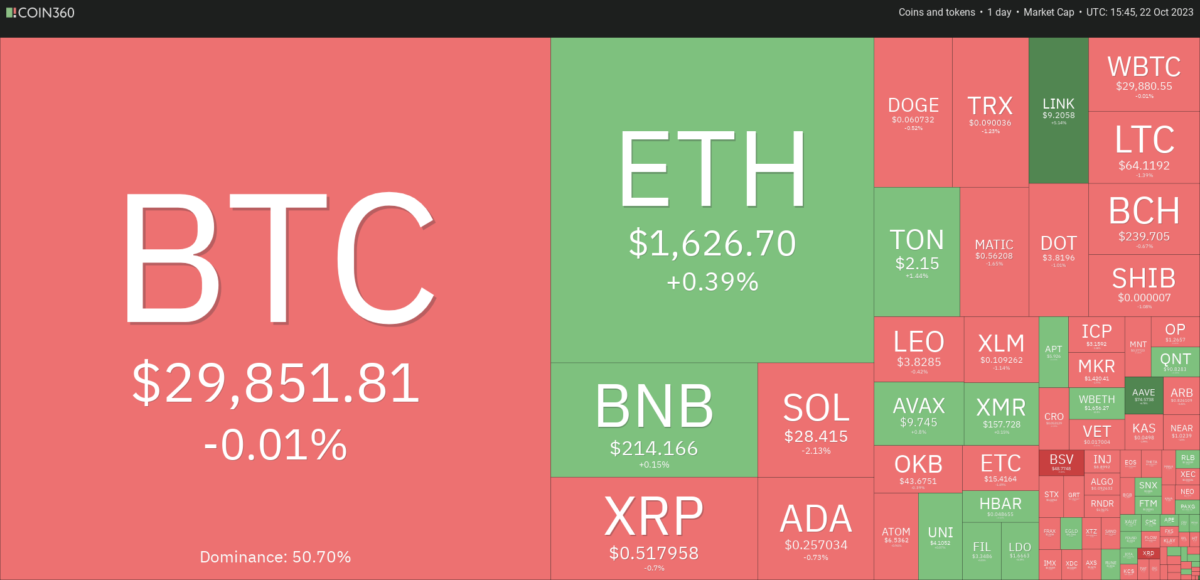
A positive development this week was that Bitcoin’s strength rubbed off to several altcoins, which surged above their respective overhead resistance levels. This suggests that the sentiment is gradually turning positive and that it may be time to consider buying selectively.
Typically, the coins that lead the markets higher are the ones that tend to do well. Laggards are generally the last to perform, hence could be avoided initially.
Let’s look at the charts of the top-5 cryptocurrencies that may outperform in the near term.
Bitcoin price analysis
Bitcoin is witnessing a tough battle between the bulls and the bears near the $30,000 mark, but a positive sign is that the buyers have not given up much ground.
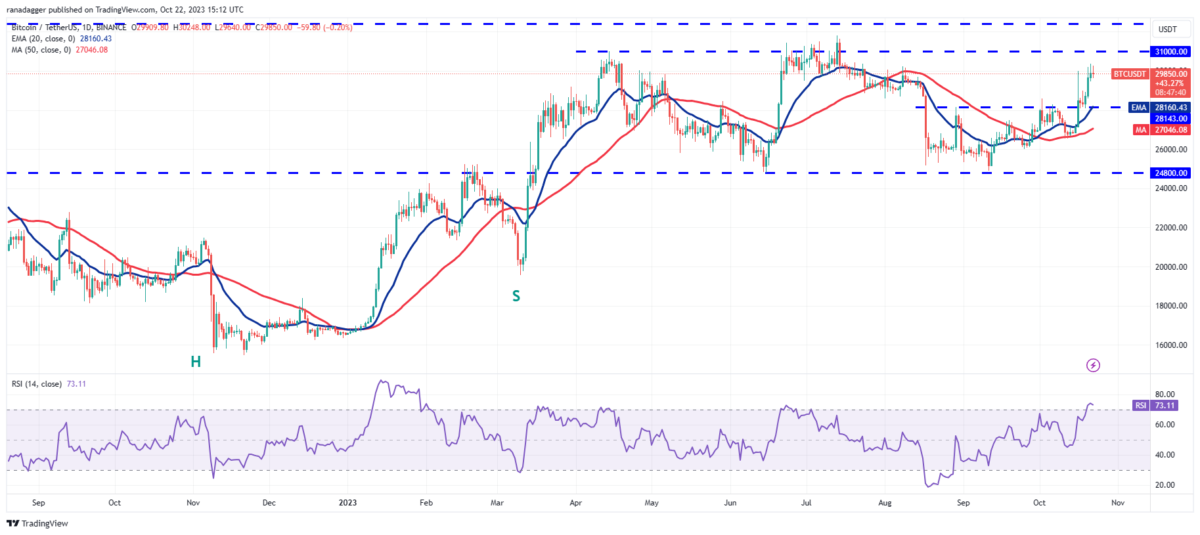
A consolidation near the current level suggests that the bulls are in no hurry to book profits as they anticipate another leg higher. That could catapult the price to the overhead resistance zone between $31,000 and $32,400.
Contrarily, if the price turns down from $31,000, the BTC/USDT pair could drop to the 20-day exponential moving average ($28,160). If the price snaps back from this level, the bulls will again try to clear the overhead hurdle.
The positive sentiment will be negated on a break below the 20-day EMA. That could keep the pair stuck inside the $31,000 to $24,800 range for some more time.
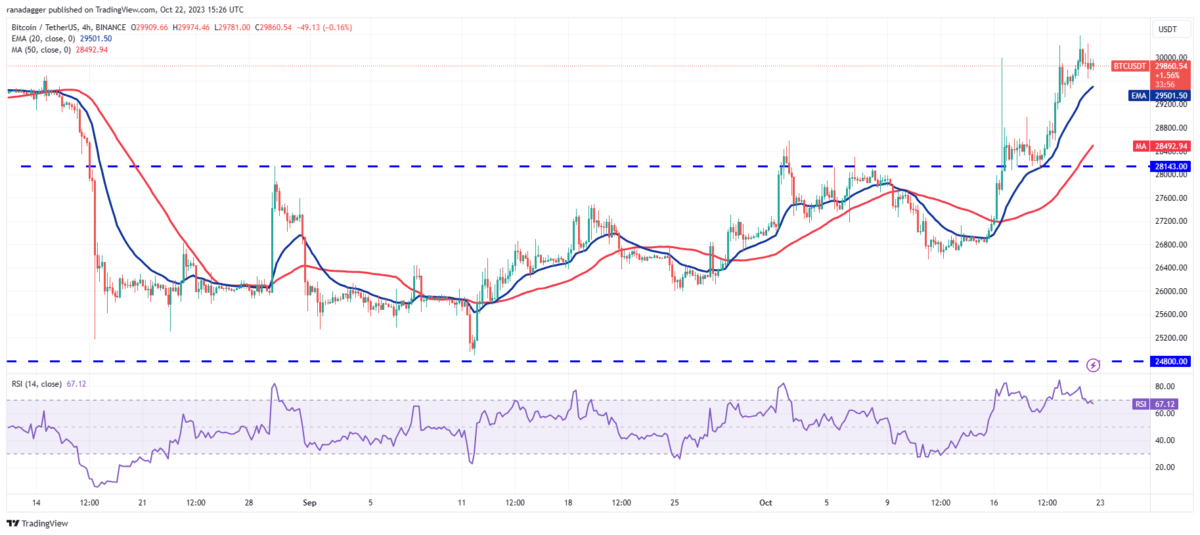
The pair is in an uptrend as seen on the 4-hour chart. Normally, during an ascent, traders buy the dip to the 20-EMA. If that happens, it will signal that the sentiment remains bullish and every minor dip is being purchased. The pair may then continue its journey toward $32,400.
Conversely, if the price skids below the 20-EMA, it will indicate that the traders may be closing their positions in a hurry. That could open the gates for a further decline to the important support at $28,143.
Solana price analysis
Solana (SOL) broke out of the neckline on Oct. 19, completing a bullish inverse head and shoulders pattern. This setup has a target objective of $32.81.
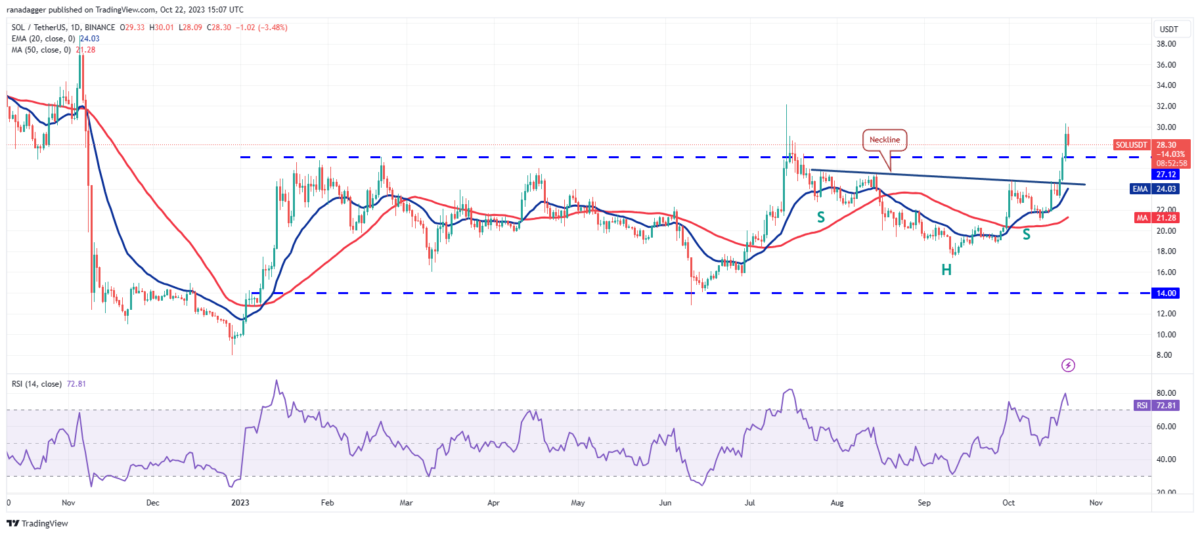
The overbought levels on the relative strength index (RSI) suggest that a correction is possible. The important support to watch on the downside is $27.12. A strong bounce off this level will indicate that the bulls have flipped the level into support. That will improve the prospects of the continuation of the uptrend. Above $32.81, the rally could hit $39.
Time is running out for the bears. If they want to halt the up-move, they will have to drag the price back below $27.12. The SOL/USDT pair may then tumble to the neckline. This remains the key level to keep an eye on because a drop below it will suggest that the break above $27.12 may have been a fake-out.
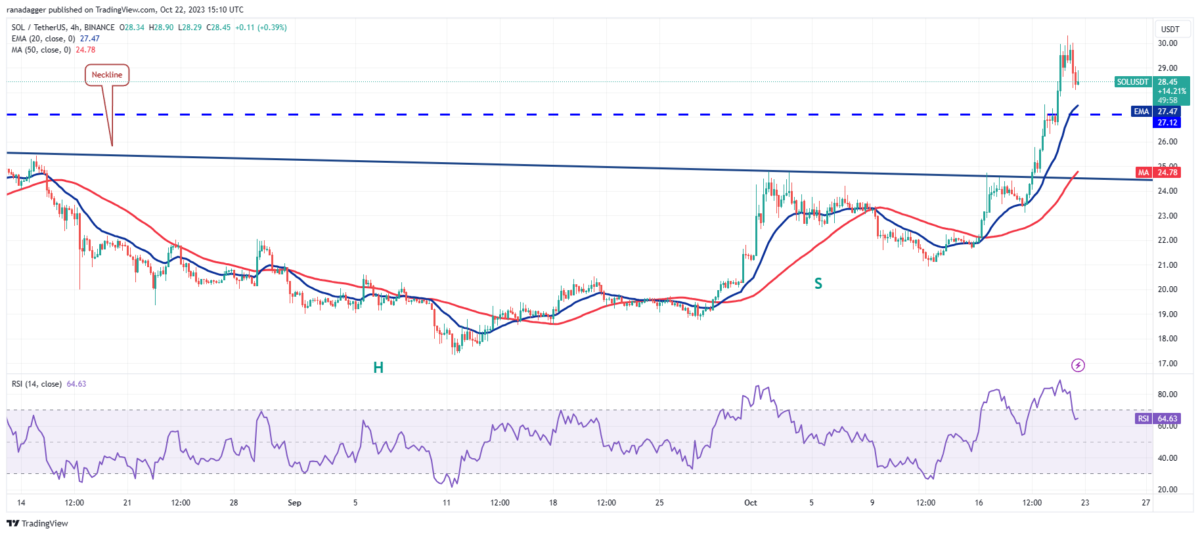
The 4-hour chart shows that the bulls are facing stiff resistance near $30. This may start a pullback which could reach the breakout level of $27.12. Buyers are expected to defend this level with vigor. A solid bounce off this level may suggest the resumption of the up-move.
On the contrary, if the price turns down and breaks below $27.12, it will signal that the bears are aggressively selling at higher levels. The pair may then dive to the neckline near $24.50. This level may again witness strong buying by the bulls.
Chainlink price analysis
Chainlink (LINK) has been trading inside a tight range between $5.50 and $9.50 since May 2022 indicating a balance between supply and demand.
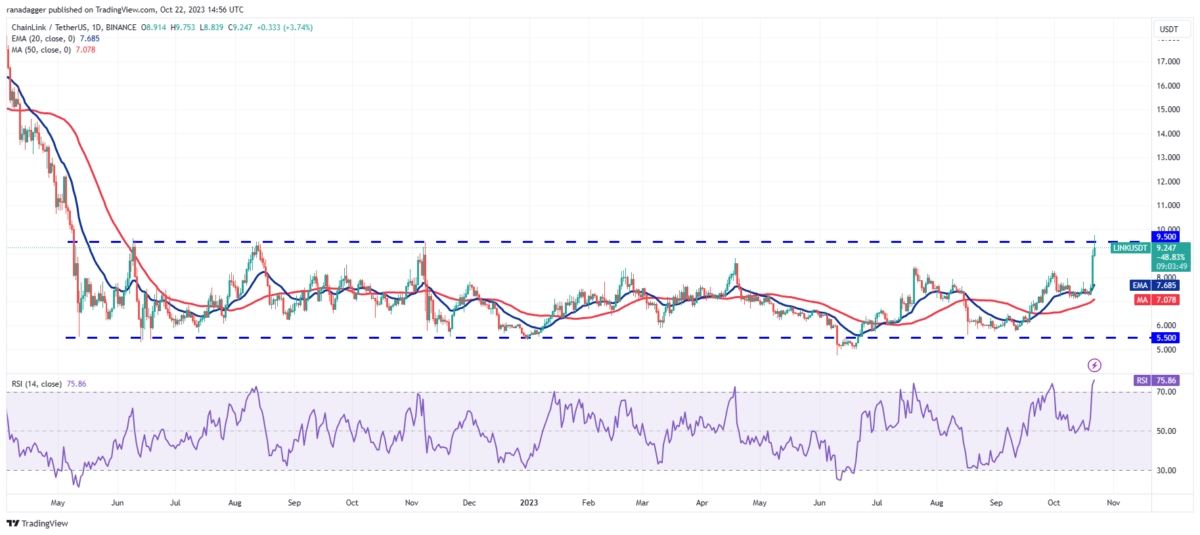
The bulls tried to resolve the uncertainty to the upside with a break above the range on Oct. 22 but the long wick on the candlestick shows that the bears are not willing to relent. If the bulls do not give up much ground from the current levels, it will enhance the prospects of a rally above $9.50.
The LINK/USDT pair could then start a move toward the pattern target of $13.50. Typically, a breakout from a long consolidation results in a sharp rally. In this case, the uptrend may stretch to $15 and thereafter to $18.
The first support on the downside is at $8.50. If bears tug the price below this level, it will suggest that the range-bound action may continue for a while longer.
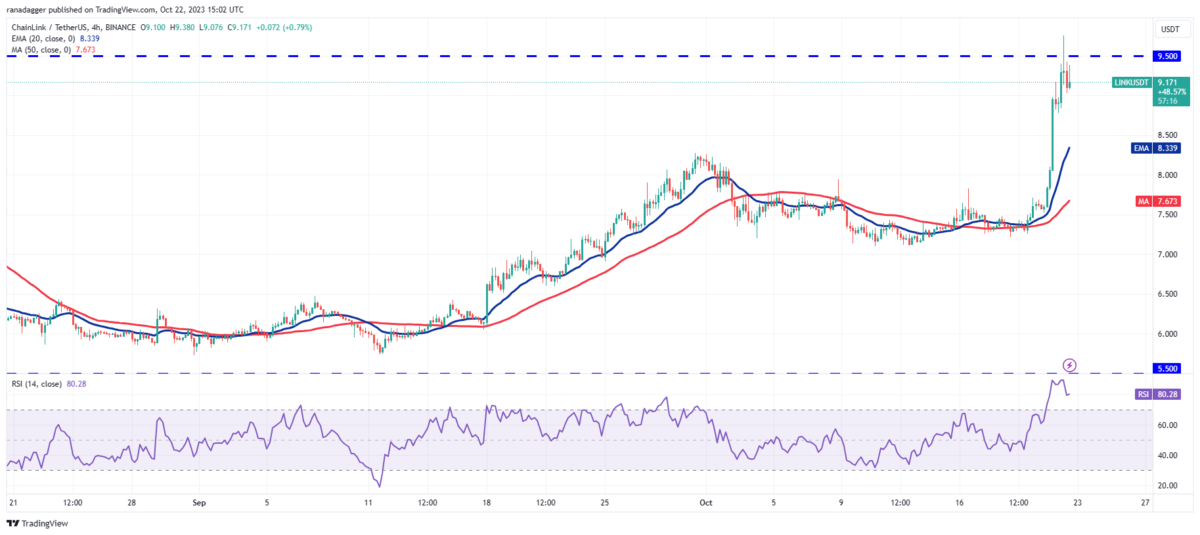
The pair witnessed a sharp rally from $7.50, which propelled the RSI deep into the overbought territory on the 4-hour chart. This suggests that the rally is overextended in the near term and could result in a pullback or consolidation.
The solid support on the downside is $8.75 and then $8.50. A strong bounce off this zone will suggest that the sentiment remains positive and traders are buying on dips. That will increase the possibility of a retest of $9.75.
On the contrary, a break below the 20-EMA will indicate that the bears are back in the game. The pair may then sump to $7.
Related: Lightning Network faces criticism from pro-XRP lawyer John Deaton
Aave price analysis
Aave (AAVE) rose above the downtrend line on Oct. 21, invalidating the bearish descending triangle setup. Generally, the failure of a negative setup starts a bullish move.
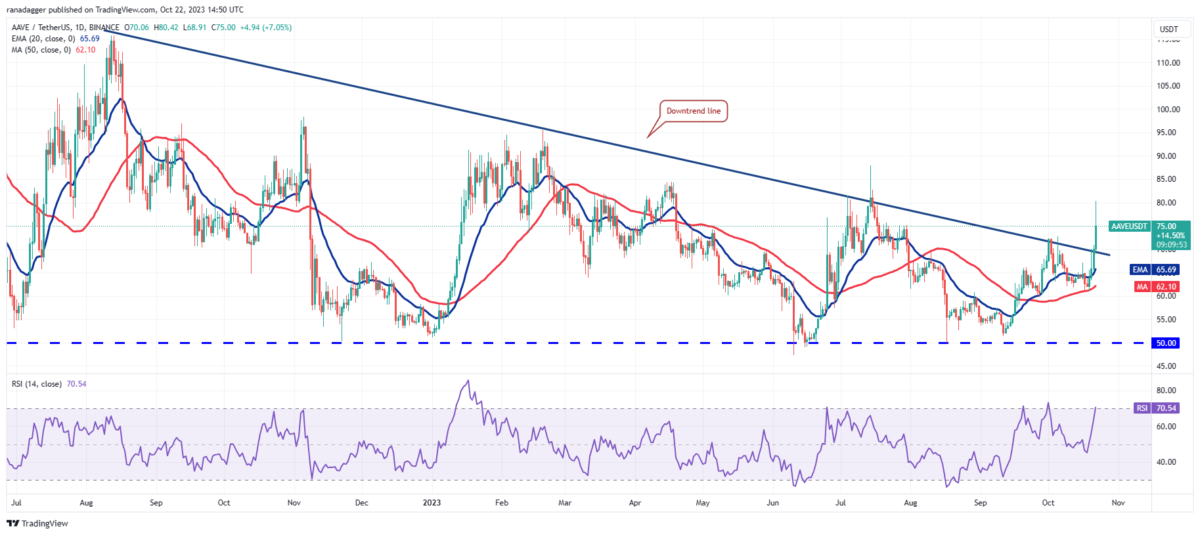
Both moving averages have started to turn up and the RSI is in the overbought territory, indicating that bulls are at an advantage. If the price maintains above the downtrend line, the AAVE/USDT pair may first surge to $88 and then to $95.
If bears want to prevent this up-move, they will have to quickly pull the price back below the downtrend line. That may catch a few aggressive bulls on the wrong foot and start a correction to the moving averages. A slide below the 50-day simple moving average ($62) will put the bears back in the driver’s seat.
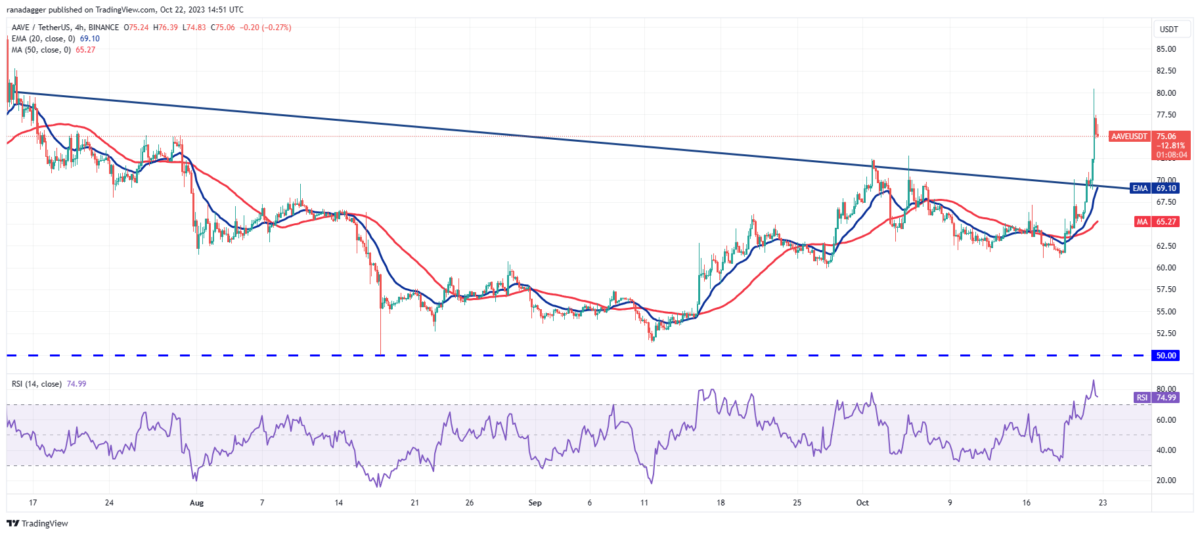
The 4-hour chart shows that the bears tried to stall the relief rally at the downtrend line but the bulls did not give up much ground. The momentum picked up and the pair is on its way higher toward $88.
A minor concern in the short term is that the RSI soared into the overbought territory indicating that a consolidation or correction is possible. On the way down, the first support is at $72. The bears will have to yank the price below the downtrend line to trap the bulls.
Stacks price analysis
Stacks (STX) rose sharply in the past few days, indicating that the bulls are trying to start a new uptrend.
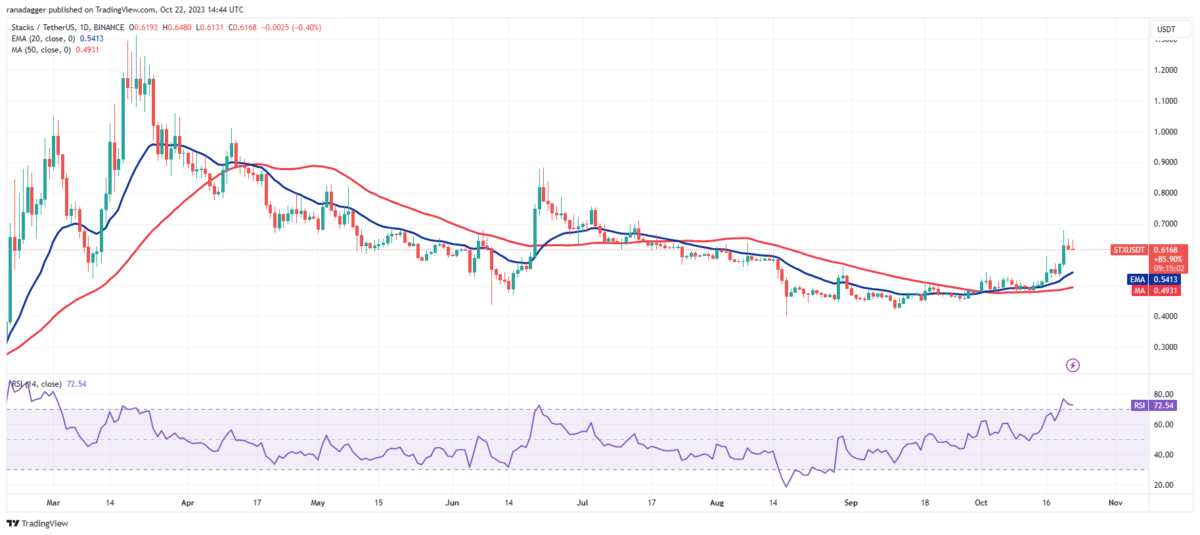
The bullish crossover on the moving averages suggests that the bulls have an edge. In the short term, the overbought levels on the RSI indicate that a minor correction or consolidation is possible. The first support on the downside is the 20-day EMA ($0.54).
If the price rebounds off this level, it will signal a change in sentiment from selling on rallies to buying on dips. That will increase the likelihood of the continuation of the up-move. The STX/USDT pair could first rise to $0.80 and subsequently to $0.90.
This positive view will be invalidated in the near term if the price turns down and plummets below the 20-day EMA.
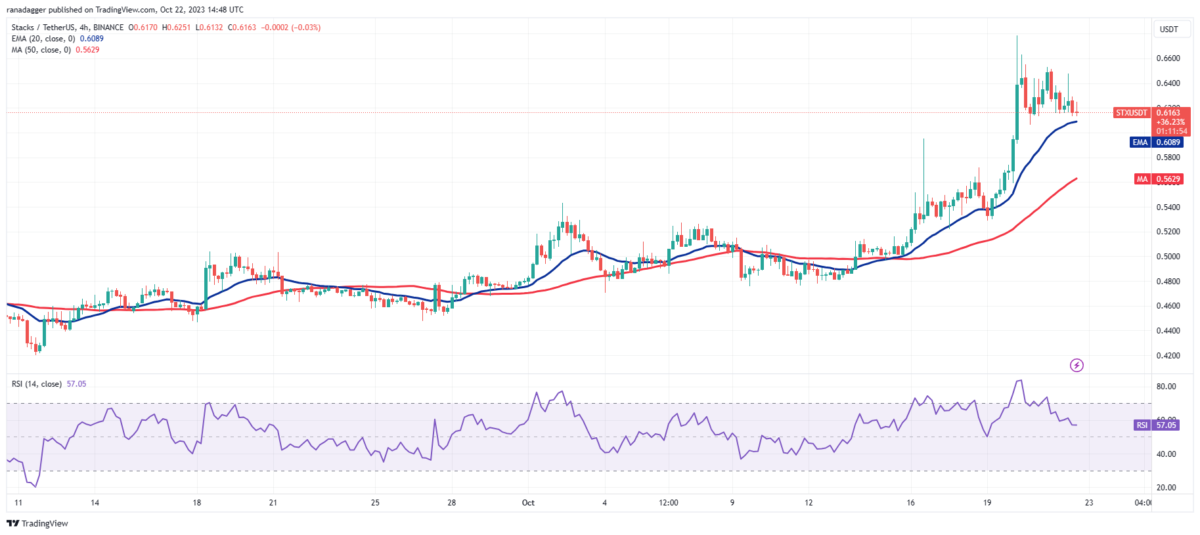
The price has been consolidating in a tight range between $0.61 and $0.65 as seen on the 4-hour chart. This is a positive sign as it shows the bulls are not rushing to the exit as they anticipate another leg higher. If buyers drive the price above $0.65, the pair will attempt a rally to $0.68 and then to $0.75.
Contrary to this assumption, if the price turns down and breaks below the 20-EMA, it will signal profit-booking by short-term traders. The pair may then plunge to the 50-SMA.
This article does not contain investment advice or recommendations. Every investment and trading move involves risk, and readers should conduct their own research when making a decision.
Author: Rakesh Upadhyay
